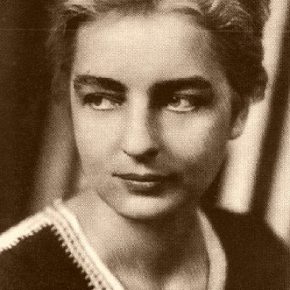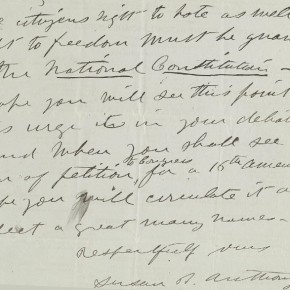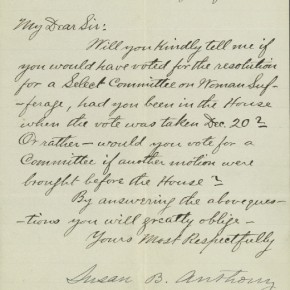Happy Ada Lovelace Day! On October 11, 2016, we’ll celebrate Ada Lovelace Day, an annual event recognizing achievements of women in science, technology, engineering, and math. This year we’re adding a new reason to celebrate: we are thrilled to announce that the papers of Ruth Fulton Benedict (VC 1909) are available digitally through Alexander Street Press’s Anthropological Fieldwork Online via open access. Though Benedict was a social scientist rather than in a field identified with STEM, her use of the scientific method to learn about others helped her advance her life’s work in anthropology. As she stated during her acceptance speech for the Annual Achievement Award of American Association of University Women in 1946, “I have faith of a scientist that behavior, no matter how unfamiliar to us, is understandable if the problem is stated so that it can be answered by investigation and if then studied by technically suitable methods. And I have the faith of a humanist in the adventures of mutual understanding of men.”
Over the past year, the Vassar College Libraries have worked with Alexander Street Press to digitize and make freely available more than 8,000 pages of diaries, field notes, articles, teaching materials, and correspondence (much of which is transcribed), as well as photographs.
The papers of Benedict, a renowned anthropologist, are housed in the Archives & Special Collections Library at Vassar. As the finding aid to her papers notes:
In 1909, after graduating Phi Beta Kappa from Vassar College, in Poughkeepsie, New York, [Ruth Fulton] Benedict traveled to Europe with college friends. Following that, she was a social worker for a year, then spent three years teaching before marrying Stanley Benedict, a biochemistry professor at Cornell Medical School, in 1914.
In 1919 Ruth Benedict began taking courses, first at Columbia University with John Dewey and then at the New School for Social Research with Elsie Clews Parsons whose course in ethnology of the sexes kindled Benedict’s interest in anthropology. Under the guidance of Franz Boas, Benedict received her doctorate in 1923 from Columbia, where she remained throughout her career. In 1948 she was promoted to full professor in the Faculty of Political Science, the first woman to achieve such status.
Benedict’s fieldwork was done in California among the Serrano and with the Zuñi, Cochiti, and Pima in the Southwest. Student training trips took her to the Mescalero Apache in Arizona and Blackfoot in the Northwest. From her work in the field, several of her books were developed: Tales of the Cochiti Indians (New York: 1931); Zuñi Mythology (New York: 1935); and Patterns of Culture (Boston: 1934), which became a bestseller and influenced American life in that it explained the idea of “culture” to the layperson.
 We are thrilled that these materials are able to reach the widest available audiences through open access.
We are thrilled that these materials are able to reach the widest available audiences through open access.
Wishing you a happy Ada Lovelace Day and best wishes for a wonderful semester for the arts, sciences, and social sciences alike!
Resources about Benedict:

















![Closeup of page 1, Anthony, Susan B. -- to William Lloyd Garrison, [Mar 8, 1859]](http://pages.vassar.edu/library/files/2015/03/vassar46740-290x290.jpg)

